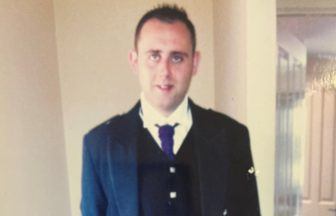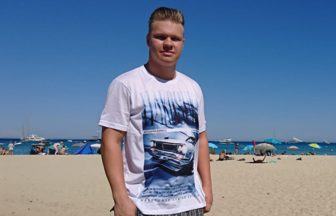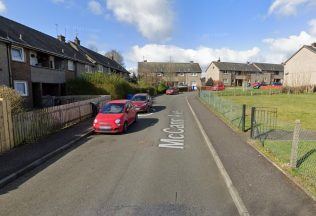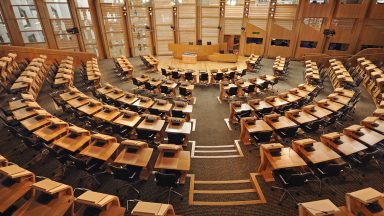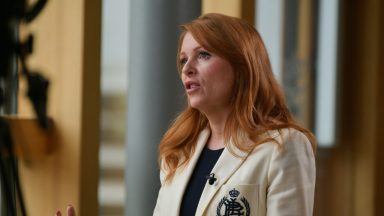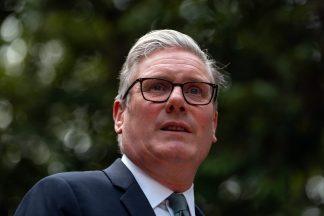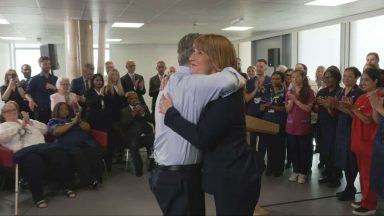In over thirty years of reporting, I have had to endure countless dinners on the “rubber chicken” circuit.
The food at these events is usually instantly forgettable but the evening is normally made tolerable by the company of senior figures in their field, whether it be business or politics or sport or entertainment.
With the help of a good bucket (to borrow a west of Scotland term), conversation can become spectacularly indiscrete.
What encourages the exchange of sometimes jaw-dropping information is the understanding that any conversation is under Chatham House rules; that is to say, you might want to use the information but can’t reveal the source of it.
If the now resigned chief executive of NatWest Dame Alison Rose had not sat next to the BBC business correspondent Simon Jack at one such event, then the chances are that the furore surrounding Nigel Farage’s banking arrangements may not have played out as they have.
Rose has resigned after admitting to an error of judgement in discussing the private banking arrangements of the former UKIP leader with Mr Jack.
The BBC man, ever respectful of Chatham House, suggested in a report that Farage was dumped by the NatWest subsidiary Coutts because he didn’t have enough money in his account. He did not identify his source(s).
The problem for Rose and Jack is that they were seen sitting together at a dinner prior to the BBC report on why Farage was dumped by Coutts.
As the story unfolded, it became impossible for both Rose and Jack to be shielded by Chatham House.
As is always the case, if you can make an issue a crusade that has politicians weighing in then any crisis management strategy is buried by the shifting sands, which eventually will pose questions for those who shared the information.
Rose should not have discussed a private banking issue with a journalist. It has always amused me that business leaders are often only too eager to share information. She would have done so expecting that Chatham House would not fall down. When it did, so did she, from her position.
The BBC, as is always their editorial want, were loathe to issue any apology, in this case to Farage when it became clear that a source on this story (Rose) had given inaccurate information relied upon by Mr Jack.
Only when the BBC’s position became untenable did Mr Jack issue an apology. He is an excellent journalist who is no doubt mortified that he in part started a chain of events that led to the resignation of an important contact.
He should have apologised sooner. Journalists are not immune from getting things wrong by trusting a more than credible source who gives incomplete or even duff information.
It does nothing for your own reputation or that of your employer to be seen to have an admission dragged out of you.
Contrast the BBC position with that of Jon Sopel, an ex-BBC correspondent. He tweeted in mocking tones about Farage being dumped by Coutts, but quickly apologised when it became clear the real issue was not Mr Farage’s financial standing but his politics.
The management of the story by NatWest has been classic crisis PR. Issue statements that talk around the issue designed to protect the boss. Then admit to an error of judgement. Then be seen to be apologising and giving ground as a final act of self-preservation.
The problem always with such strategies is that the story engulfs them. By the time the chancellor and the prime minister let it be known they had real concerns about the apparent targeting of Farage on political grounds, then Dame Alison’s little tete-a-tete with Mr Jack effectively sealed her fate.
Now, Nigel Farage is a politician on the free market right. He believes in a smaller state and lower taxes. He deplores what he sees as nannyism and wokery.
He is in many respects an old-fashioned nationalist who once again believes that Britannia can rule the economic waves in a post-Brexit Britain.
He rails against what he sees as uncontrolled immigration, the constitutional imperialism of foreign courts, the nonsense of the green agenda and the way in which the Tory party are now a slave to perpetual state intervention.
Those who oppose him believe he peddles myths about migrants, in the process making those with extreme and racist views look respectable. They view him as a Little Englander harking back to an age that can never exist and as a dangerous phenomenon of modern politics: an able communicator with a bent for demagoguery.
Now, you can take your pick on what you think of Farage. He is well to the right of the centre ground of politics in much the same way as a class revolutionary Marxist is well to the left.
What appears unarguable is that his views are legitimate as part of the debate and division that are the lifeblood of a liberal democracy. It ill behoves banks to apply rules in a seemingly discriminatory way simply because they don’t like a client’s politics.
No doubt Coutts have as clients many individuals who are of dubious character, who may very well be involved in activities that from an ethical perspective should question the appropriateness of their banking arrangements.
The Farage case has been important because it raises fundamental questions about the right to banking facilities and the way and circumstances that are legitimate to withdraw them.
The right-wing press have had an obsession with this story since they can come to the defence of one of their own, while continuing to make life difficult for BBC News in the wake of the Huw Edwards situation.
The story is important, utterly legitimate, even if some are in danger of losing perspective.
I read one tweet this morning to the effect that banking facilities of one rich person have become an obsession, while the record numbers using food banks are hardly commented upon.
It’s an observation that editors might wish to reflect upon.
Follow STV News on WhatsApp
Scan the QR code on your mobile device for all the latest news from around the country




